If you come from a predominantly culinary background, the thought of balancing your restaurant’s finances might seem overwhelming. But as a restaurant owner, it’s imperative that you stay on top of your finances to make sure you understand exactly what’s happening at your business.
Here are some helpful tips to keep in mind when setting up your restaurant’s bookkeeping process.
1. Use Restaurant Bookkeeping Software
Utilizing one of the many restaurant accounting software options available will allow your business to better streamline its finances. And if you don’t come from a number crunching background, don’t worry — this type of software tends to be very intuitively designed so even someone new to the world of accounting can grasp the basics quickly.
Some bookkeeping software brands that specifically cater to restaurants can connect directly to your POS system. In fact, depending on how old your current system is, this might be a good time to upgrade your POS system too.

2. Make Recording Part of Your Routine
Updating and reconciling your financial records is a huge part of the restaurant bookkeeping process. Not only will it give you a clearer picture of where your business is heading, but it may be able to help you identify some potential red flags, such as employee theft or major food waste.
A few metrics to keep in mind:
- A profit and loss statement should be done once a month.
- Counting inventory should be done at least monthly, but weekly is even better.
- Reporting on labor and food costs should be done once a week.
Getting into the habit of these best practices is often the hardest part. Just like your cleaning process and ongoing training programs, it’s all about repetition and making recording the financials a part of your regular routine as a business owner.
3. Evaluate Inventory Costs
Unlike many retail industries, inventory costs for restaurants can fluctuate wildly, even from week to week. Maybe a drought has affected broccoli farmers. Or maybe disease has affected how much cod your fish supplier has in stock. It could also just come down to the fact that you’re ordering asparagus when it’s out of season.
However, if you make it a point to regularly evaluate your inventory costs, you can more confidently decide if you need to make changes to your inventory ordering, your menu prices, or your overall menu.

4. Layer Your Bookkeeping Tasks
Many business owners make the mistake of scheduling time for all their restaurant bookkeeping responsibilities on the same work day. While this might sound like a good way to get all the bookkeeping done quickly, this can actually be less efficient.
Crunching numbers, evaluating spreadsheets, and comparing order forms can become draining if you’re spending several hours on it at a time. Besides your productivity slowing down if you start to become mentally exhausted, you could also start making mistakes.
Instead, try grouping bookkeeping tasks together and schedule each group for a different day. Getting your other work tasks done in between will bring variety to your schedule. This allows you to be efficient with your mental energy, and you can come back to your restaurant bookkeeping with a clear head.
5. Hire an Accountant
While you should be able to handle many of the day-to-day accounting activities of your restaurant yourself, you may also want to consider hiring a professional accountant to help with some of the big-picture accounting tasks. Not only can they help you when tax season rolls around, a restaurant accountant can also advise you on long-term finances.
Need insight into if you can afford to upgrade your kitchen equipment or remodel your bathroom this year? Part of your accountant’s job should be to know what options you have, or at least what plan should be put in place so you have those funds down the line.
The other benefit of hiring an accountant is that they can look at your current bookkeeping system and give advice on how you can be working smarter, not harder, when it comes to balancing the books.
Need a leg up on creating a business plan? Download our free e-tool “9 Essential Parts of a Winning Restaurant Business Plan” today!
Rewards Network® does not provide tax, legal, or accounting advice. This material has been prepared for informational purposes only, and is not intended to provide, and should not be relied on for, tax, legal, or accounting advice. You should consult your own tax, legal and accounting advisors before engaging in any transaction.






